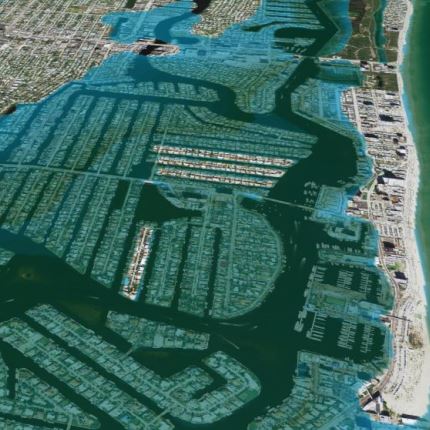 Paul Girello doesn’t have to buy flood insurance anymore.
Paul Girello doesn’t have to buy flood insurance anymore.
The Pembroke Pines resident recently received a letter from his mortgage lender confirming his home is no longer in a high-risk flood zone and, as a result, flood insurance coverage is no longer required on his property.
The $400 to $500 he could save by dropping his coverage could buy a new high-definition television for the bedroom, a weekend getaway or a couple of cocktails at a Miami Beach nightclub.
But would it be worth losing the peace of mind that his home and possessions would be covered in case of an unexpected flood?
Girello and tens of thousands of other Broward County residents now have to decide whether dropping their flood coverage — even if it’s no longer required — would be a smart thing to do. Thousands of Palm Beach County homeowners will face the same decision in the near future.
Over the past month, mortgage lenders have been sending letters to customers who, until Aug. 18, were required by the federal government to carry flood insurance because they had mortgages with federally backed lenders and lived in zones determined to be at high risk of flooding.
But new flood maps finalized in August by the Federal Emergency Management Agency removed the high-hazard flood designation from most neighborhoods west of the Florida Turnpike, along with other areas throughout the county.
Letters from the lenders are notifying homeowners in Broward County that they are free to cancel their flood insurance.
What customers might not understand, and what most of the lenders’ letters are not clearly stating, is that most of the banks will no longer collect escrow payments or allow homeowners to continue rolling their flood insurance payments into their monthly mortgage payments for properties where flood insurance is no longer required.
So homeowners who want to continue to buy discounted lower-risk flood insurance will now have to pay for it directly to their insurance agents.
That’s prompting concerns by insurance agents and flood insurance advocates that homeowners might blow off paying a $300 to $400 lump sum at renewal time and not be covered if there’s a damaging flood.
FEMA’s remapping is part of a five-year effort to re-evaluate property owners’ flood risks nationwide using modern aerial imagery, revised elevation data, recent flood experiences and input from local engineers. The effort replaces maps in use for decades.
Broward’s new maps were finalized on Aug. 18. Preliminary maps for Palm Beach County were unveiled last month, and thousands of homeowners in that county will face the same choice when FEMA finalizes those maps.
Thousands dropped from flood zones
About 266,000 land parcels in Broward County were taken out of mandatory flood insurance zones. That’s 60 percent of all parcels formerly in the zones. About a quarter — 122,000 — remain in mandatory coverage zones, and 31,000 more that were outside the mandatory insurance zones will now be required to buy flood insurance if they have mortgage loans from federally regulated or insured lenders.
Most homeowners who choose to drop their coverage stand to pocket an extra $400 to $500, the typical price charged to customers in high-risk flood zones for the maximum coverage available through the National Flood Insurance Program, covering up to $250,000 for structure replacement and $100,000 to replace the contents.
Letters have gone out to customers of the five largest banks in South Florida — Wells Fargo, Citi, SunTrust, Bank of America and J.P. Morgan Chase.
“Your property is now considered to be minimally exposed to the risk of flooding but not excluded from the risk of flood,” the letter from Citi’s mortgage branch says. “As a homeowner, you may still want to maintain flood insurance on your property to protect your home and contents.”
Source: SunSentinel





